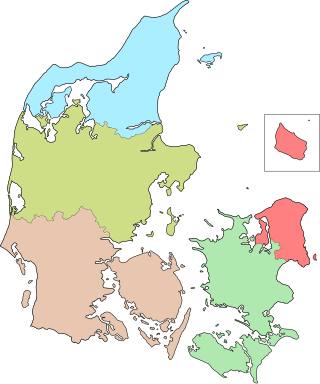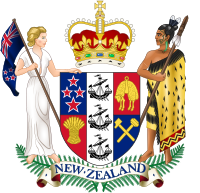Rogernomics were the neoliberal economic reforms promoted by Roger Douglas, the Minister of Finance between 1984 and 1988 in the Fourth Labour Government of New Zealand. Rogernomics featured market-led restructuring and deregulation and the control of inflation through tight monetary policy, accompanied by a floating exchange-rate and reductions in the fiscal deficit.

The Church of Scientology has been involved in numerous court disputes across the world. In some cases, when the Church has initiated the dispute, questions have been raised as to its motives. The Church of Scientology says that its use of the legal system is necessary to protect its intellectual property and its right to freedom of religion. Critics say that most of the organization's legal claims are designed to harass those who criticize it and its manipulative business practices.
A municipal bond, commonly known as a muni, is a bond issued by state or local governments, or entities they create such as authorities and special districts. In the United States, interest income received by holders of municipal bonds is often, but not always, exempt from federal and state income taxation. Typically, only investors in the highest tax brackets benefit from buying tax-exempt municipal bonds instead of taxable bonds. Taxable equivalent yield calculations are required to make fair comparisons between the two categories.

Sir Michael John Cullen was a New Zealand politician. He served as the 16th deputy prime minister of New Zealand, also as the minister of Finance, minister of Tertiary Education, and attorney-general. He was the deputy leader of the Labour Party from 1996 until November 2008, when he resigned following a defeat in the general election. He resigned from Parliament in April 2009, to become the deputy chairman of New Zealand Post from 1 November 2009 and chairman from 1 November 2010 until leaving the role in 2016. On 6 March 2020 he announced that he had resigned from the Lakes and Bay of Plenty district health boards, respectively. At the same time he also announced that he had been diagnosed with stage 4 small-cell lung cancer, which had also spread to his liver.

Dame Sian Seerpoohi Elias was the 12th chief justice of New Zealand, and was therefore the most senior member of the country's judiciary. She was the presiding judge of the Supreme Court of New Zealand and on several occasions acted as administrator of the Government.
A capital gains tax (CGT) is the tax on profits realized on the sale of a non-inventory asset. The most common capital gains are realized from the sale of stocks, bonds, precious metals, real estate, and property.

The Government of India is the central executive authority of the Republic of India, a federal republic located in South Asia, consisting of 28 states and eight union territories. The government is led by the prime minister who exercises the most executive power and selects all the other ministers. The country has been governed by a NDA-led government since 2014. The prime minister and their senior ministers belong to the Union Council of Ministers—its executive decision-making committee being the cabinet.

Bank of New Zealand (BNZ) is one of New Zealand's big four banks. It has been operating since October 1861, and since 1992 has been owned by National Australia Bank (NAB), retaining local governance with a New Zealand board of directors. The bank operates a variety of financial services covering retail, business, and institutional banking.
A tax refund is a payment to the taxpayer due because the taxpayer has paid more tax than owed.

The five Regions of Denmark were created as administrative entities at a level above the municipalities and below the central government in the public sector as part of the 2007 Danish Municipal Reform, when the 13 counties (amter) were abolished. At the same time, the number of municipalities (kommuner) was cut from 270 to 98. The reform was approved and made into a law by the lawmakers in the Folketing 26 June 2005 with elections to the 98 municipalities and 5 regions being held Tuesday 15 November 2005.

Federated Farmers of New Zealand is a lobby and advocacy group for all farmers: arable including fruit and vegetables, dairy and meat and their often remote communities. It has a network of 24 regional organisations and six industry groups. Federated Farmers lobbies on farming issues both nationally and within each region. Membership of the organisation is voluntary, and at 2021 it has over 13,000 members.

Taxes in New Zealand are collected at a national level by the Inland Revenue Department (IRD) on behalf of the New Zealand Government. National taxes are levied on personal and business income, and on the supply of goods and services. Capital gains tax applies in limited situations, such as the sale of some rental properties within 10 years of purchase. Some "gains" such as profits on the sale of patent rights are deemed to be income – income tax does apply to property transactions in certain circumstances, particularly speculation. There are currently no land taxes, but local property taxes (rates) are managed and collected by local authorities. Some goods and services carry a specific tax, referred to as an excise or a duty, such as alcohol excise or gaming duty. These are collected by a range of government agencies such as the New Zealand Customs Service. There is no social security (payroll) tax.

The Commission of Inquiry into Certain Matters Relating to Taxation, popularly known as the Winebox Inquiry, was an inquiry undertaken in New Zealand to investigate claims of corruption and incompetence in the Serious Fraud Office (SFO) and Inland Revenue Department (IRD).
Tax protesters in the United States advance a number of conspiracy arguments asserting that Congress, the courts and various agencies within the federal government—primarily the Internal Revenue Service (IRS)—are involved in a deception deliberately designed to procure from individuals or entities their wealth or profits in contravention of law. Conspiracy arguments are distinct from, though related to, constitutional, statutory, and administrative arguments. Proponents of such arguments contend that all three branches of the United States government are working covertly to defraud the taxpayers of the United States through the illegal imposition, assessment and collection of a federal income tax.

KiwiSaver is a New Zealand savings scheme which has been operating since 2 July 2007. Participants can normally access their KiwiSaver funds only after the age of 65, but can withdraw them earlier in certain limited circumstances, for example if undergoing significant financial hardship or to use a deposit for a first home.
Ian Wishart is a New Zealand journalist, author and publisher, and the editor of Investigate magazine. He is a conservative Christian, an opponent of the scientific consensus on climate change, and has been described as a "professional controversialist".

The Fifth Labour Government of New Zealand was the government of New Zealand from 10 December 1999 to 19 November 2008. Labour Party leader Helen Clark negotiated a coalition with Jim Anderton, leader of the Alliance Party. While undertaking a number of substantial reforms, it was not particularly radical compared to previous Labour governments.
The redemption movement is an element of the pseudolaw movement, mainly active in the United States and Canada, that promotes fraudulent debt and tax payment schemes. The movement is also called redemptionism. Redemption promoters allege that a secret fund is created for every citizen at birth and that a procedure exists to "redeem" or reclaim this fund to pay bills. Common redemption schemes include acceptance for value (A4V), Treasury Direct Accounts (TDA) and secured party creditor "kits," collections of pseudolegal tactics sold to participants despite a complete lack of any actual legal basis. Such tactics are sometimes called "money for nothing" schemes, as they propose to extract money from the government by using secret methods. The name of the A4V scheme in particular has become synonymous with the movement as a whole.
Multiple citizenship is a person's legal status in which a person is at the same time recognized by more than one country under its nationality and citizenship law as a national or citizen of that country. There is no international convention that determines the nationality or citizenship status of a person, which is consequently determined exclusively under national laws, that often conflict with each other, thus allowing for multiple citizenship situations to arise.
The rule against foreign revenue enforcement, often abbreviated to the revenue rule, is a general legal principle that the courts of one country will not enforce the tax laws of another country. The rule is part of the conflict of laws rules developed at common law, and forms part of the act of state doctrine.











